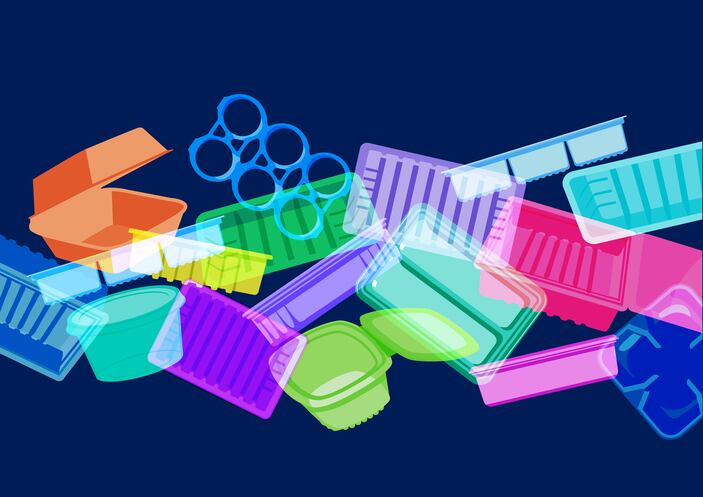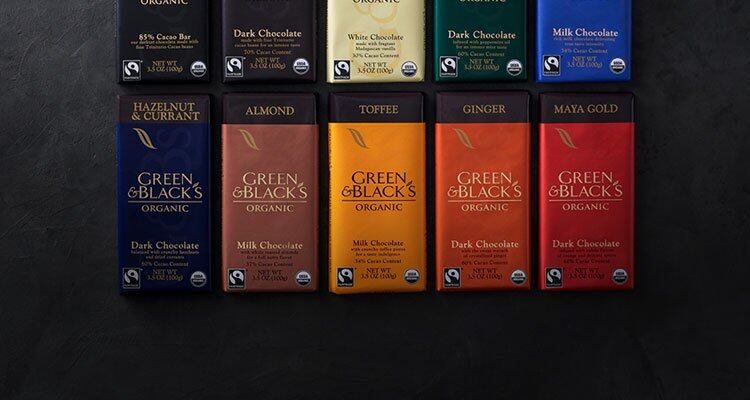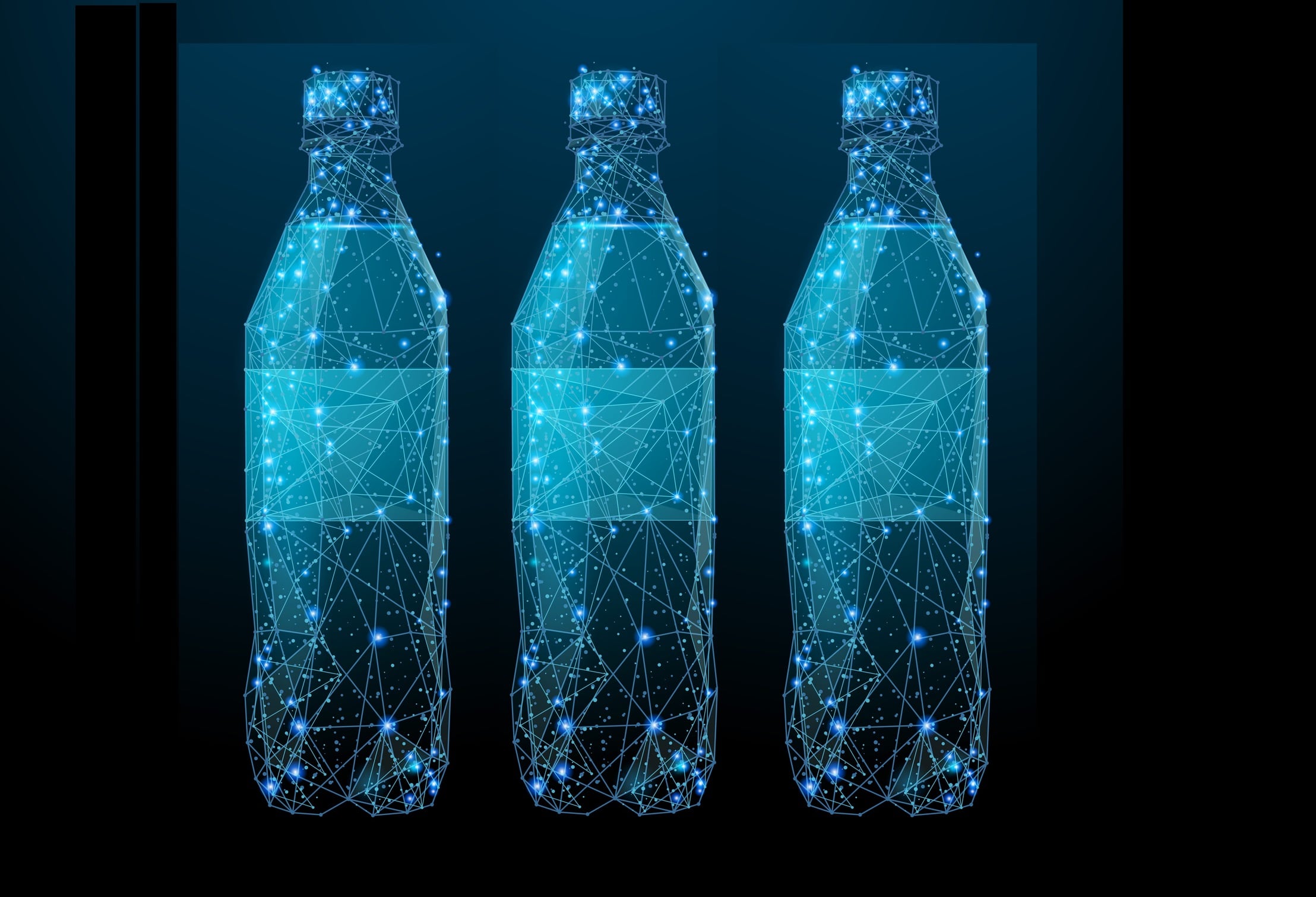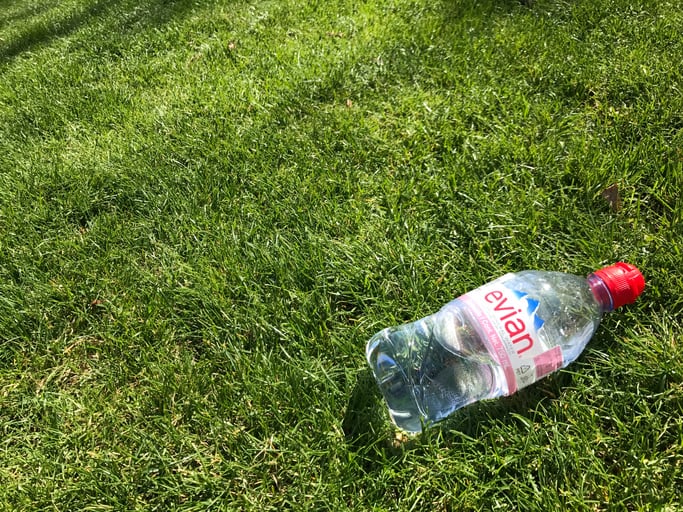Plastic bottles, trays and pots are due to be included in the tax.
Announced in Budget 2018 this week, the government has also announced it will allocate £20m ($25.5m) to tackle plastics and boost recycling: £10m ($12.8m) more for plastics R&D and £10m ($12.8m) to pioneer innovative approaches to boosting recycling and reducing litter, such as smartbins.
Revenues from the single use packaging tax will be used to tackle waste and litter.
The idea of a plastic packaging tax was outlined last year's Budget and this year the government says it wants to move forward with introduction in 2022.
New plastic vs recycled plastic
The amount of plastic the UK is throwing away is set to increase by over a million tonnes by 2030, equivalent to 87,000 more double decker buses worth of plastic waste each year, according to research from the WWF.
A survey from Ingredient Communications earlier this year suggested that more than half of UK consumers are in favour of a plastic packaging tax.
The vast majority of the 2.26 million tonnes of plastic packaging used in the UK every year is made from new material, rather than recycled material, primarily because it is cheaper.
A new tax, however, will tax packaging that has less than 30% recycled content.
“The tax will provide a clear economic incentive for businesses to use recycled material in the production of packaging which in turn will create greater demand for this material," says the government in the Budget documents. "This is a brand-new tax and will be a world leading approach.
“Business will have until April 2022 to adapt their processes before the introduction of the tax. This will give them time to adjust their behaviour and manage any costs they face while ensuring action is still taken to tackle this important environmental issue.”
The tax is subject to consultation and the government documents do not yet set out a summary of what plastics will and won't be included; however, the Treasury confirms that the tax is due to cover plastic bottles, trays and pots.
The plastic packaging tax will work alongside a reformed ‘Packaging Producer Responsibility System’.
Plans will be set out later this year to reform this system to make businesses who make and use packaging, including plastic, more responsible for the clean-up and recycling cost of that packaging. It is also designed to encourage them to design and use plastic packaging that is easier to recycle, and discourage them from using plastics which are difficult to recycle, such as black plastic used in food trays.
Challenges and opportunities
While the government’s Budget 2018 documents set out the vision for a single use plastic packaging tax, it is in the initial stages of development and does not set out the specifics of what will and will not be subject to the tax; nor address how challenges may be addressed.
The Food and Drink Federation (FDF) highlights that such a tax will lead to higher costs for food and drinks companies in the UK.
Ian Wright CBE, FDF Chief Executive said: “While we are committed to reducing packaging waste and working with Government, today’s new tax on plastic packaging will result in significantly increased costs for UK food and drink manufacturers, due to the input costs required to produce food-grade recycled packaging.”
Meanwhile, Wood Mackenzie, an energy research and consultancy, highlights the challenges businesses may face in finding quality rPET for use in their plastic packaging.
Philip Marshall, head of PET, said: "Due to the challenging nature of collection, recyclate availability is proving difficult to increase and then re-use. If there is a greater demand placed on recyclate used within packaging production, due to today's proposed tax, the cost of said packaging is likely to rise in the short-to-medium term. Historically, these charges have been taken by brand owners and producers.
“Additionally, there are technical difficulties - with no speedy solutions available - to overcome. To ensure 30% recycled PET is used in packaging in the first place, this material will need to be collected and reused - which still remains one of the biggest hurdles to overcome."
Veolia UK & Ireland, which manages waste and recycling, is investing £1bn in recycling infrastructure in the UK over the next five years.
Richard Kirkman, Chief Technology and Innovation Officer, Veolia UK & Ireland said: "The Chancellor focused on delivering a level playing field for manufacturers and the recycling sector, helping to bolster the circular economy and protect our common environment. The tax announced has the potential to ensure recycled content becomes the currency of production.”
rPET in plastic bottles
Coca-Cola is aiming to use 50% rPET in its bottles by 2020 in Great Britain (it currently uses 25% rPET).
PepsiCo has pledged to up rPET content to 45% by 2025 and 50% by 2030 across the EU (its current average is 13% rPET).
Britvic is aiming for 30% average recycled content across all plastic packaging by 2025.
Ribena (Lucozade Ribena Suntory) has been using a 100% rPET bottle since 2007, while Highland Spring is trialling a 100% rPET bottle this year.
Disposable coffee cups
Calls have been made for a ‘latte levy’ in the UK, tackling the waste from disposable coffee cups which are difficult to recycle due to their plastic lining.
However, to the disappointment of campaigners the government says it will not introduce a tax on these items: saying that a levy ‘would not at this time be effective in encouraging widespread reuse’.




